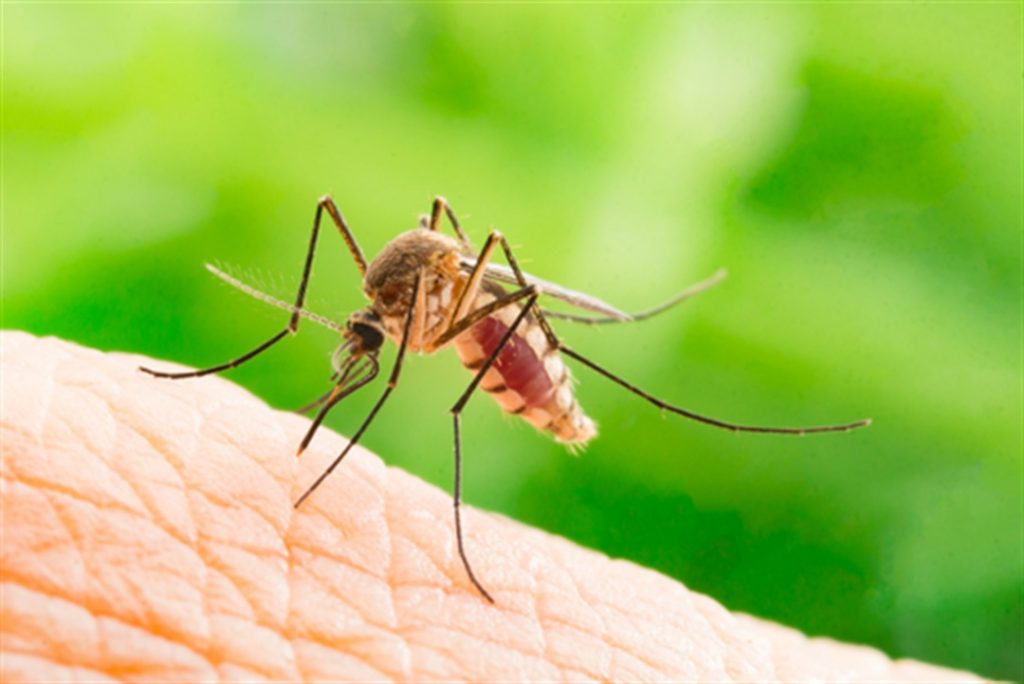
To listen to this reflection as a podcast, click here.
“Mommy, why did God make mosquitoes?”
That’s a very good question.
And it’s one that grown-ups annually find themselves asking as spring weather morphs into the signature heat and humidity of summer that mosquitoes seem to love.
“Mosquito metrics” are daunting. Entomologists know of at least 3,500 species, 175 of which are proud to call themselves American. On any given day, there are something like 100 trillion mosquitoes buzzing somewhere in the world. That’s the number one followed by 14 zeroes.
When it comes to mosquito-borne threats to humanity, at least we can cut that number in half. Females alone do the biting. Unfortunately, they do a lot of it. Research indicates the average mosquito bites five humans a day (or perhaps the same unlucky gardener five times).
“Biting” is actually a misleading description of what happens when a mosquito lands on the back of your neck during your camping trip or backyard barbecue. Female mosquitoes have no mandibles. They stab your skin with a sharp proboscis, then suck up to three times their own body weight in blood.
How will that mosquito find your particular neck? The little suckers have surprisingly bad eyesight, but an extraordinary sense of smell (about 10,000 times better than yours). They’re attracted by the carbon dioxide you emit during respiration, and rely on sensitive antennae to locate a good place to drill.
It’s long been said that eating bananas is a surefire way to attract mosquitoes, and that using Listerine is an excellent means of defense. Scientific confirmation of both those propositions is pending. In the meantime, using Listerine will almost certainly prove to be a positive contribution to your human relationships.
Male mosquitoes live only about 10 days (sorry, guys), while a female conducts business for around two months. During that time she may bring as many as 3,000 offspring into the world.
All of this would be simply annoying – the buzzing, the itching, and the constellations of red welts on our skin (caused by an allergic reaction to tiny amounts of mosquito saliva) – if it weren’t for the biological “gifts” that are sometimes left behind. Mosquitoes turn out to be the ultimate aerial delivery system for a wide variety of viruses and parasites, including encephalitis, Dengue fever, West Nile virus, and, most notoriously, malaria.
This reality has produced consequences we are only beginning to grasp.
In his book The Mosquito: A Human History of Our Deadliest Predator, Canadian historian Timothy Winegard reports that professional demographers believe that about 108 billion human beings have ever lived on our planet (with just over 8 billion alive right now). How many of those lives have been cut short by mosquito-borne diseases? The answer is an astounding 52 billion, most of them young children.
In other words, almost one-half of humanity has fallen to an insect so fragile it can be crushed with a mere swat.
Which only makes us ask more urgently: God, why did you make mosquitoes?
The answer, of course, is that we really have no idea. But it’s worth pursuing some possibilities.
Biologists know that mosquitoes, because of their sheer biomass, provide one of the most reliable food sources for myriad other creatures, including numerous species of birds and fish. If we had some way of eradicating all mosquitoes, the result would almost certainly be monumental changes to existing ecosystems. And we know that human attempts to “improve” the environment (like importing rabbits to Australia and sparrows to the United States, and eliminating bald eagles and gray wolves across North America) generally backfire.
The ancient Greeks were just as frustrated with mosquitoes as we are. They called them “Anopheles,” the name currently attached to the genus of mosquito that transmits malaria. “Anopheles” literally means “good for nothing.”
It may seem to us that mosquitoes are worth less than nothing. But we must admit that we simply don’t know what role(s) they might play in the Earth’s interconnected ecosystems. Creatures that we used to disdain and disregard have often turned out to be crucial players.
“The earth is the Lord’s, and everything in it, the world, and all who live in it” (Psalm 24:1). Such verses are the foundation for a humble posture of stewardship toward everything we encounter in God’s world.
That doesn’t mean, however, that we don’t do everything we can to protect human life.
The fight continues against mosquito-borne diseases. Bill Gates concluded years ago that Microsoft would be a trivial gift to humanity compared to the possibility of eradicating malaria, which is why the Gates Foundation is leading the way in trying to safeguard children on the continent of Africa.
And, believe it not, scientific studies of the proboscis of the female mosquito have led to the development of a less painful hypodermic needle – something to celebrate the next time you’re compelled to give blood in your doctor’s office.
Does that mean that mosquitoes might be our friends after all?
Let’s just say that no one will blame you for swatting every mosquito in sight this summer.
But the next time you need a burst of inspiration, you just might remember this old saying:
“Anyone who thinks they are too small to make a difference has never tried to fall asleep with a mosquito in the room.”
